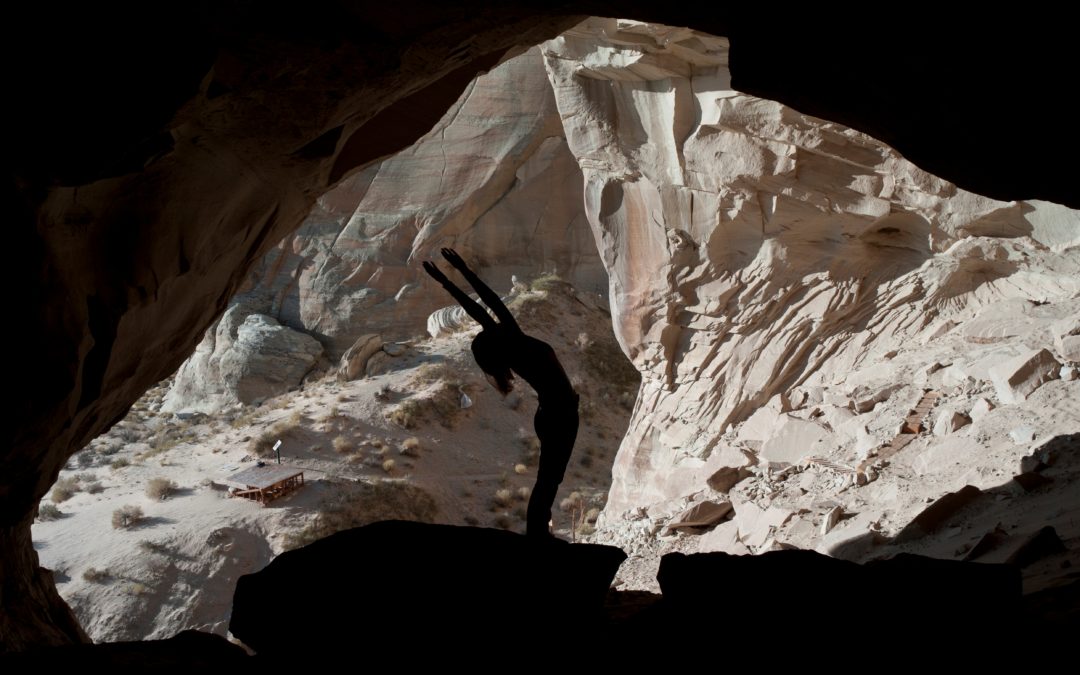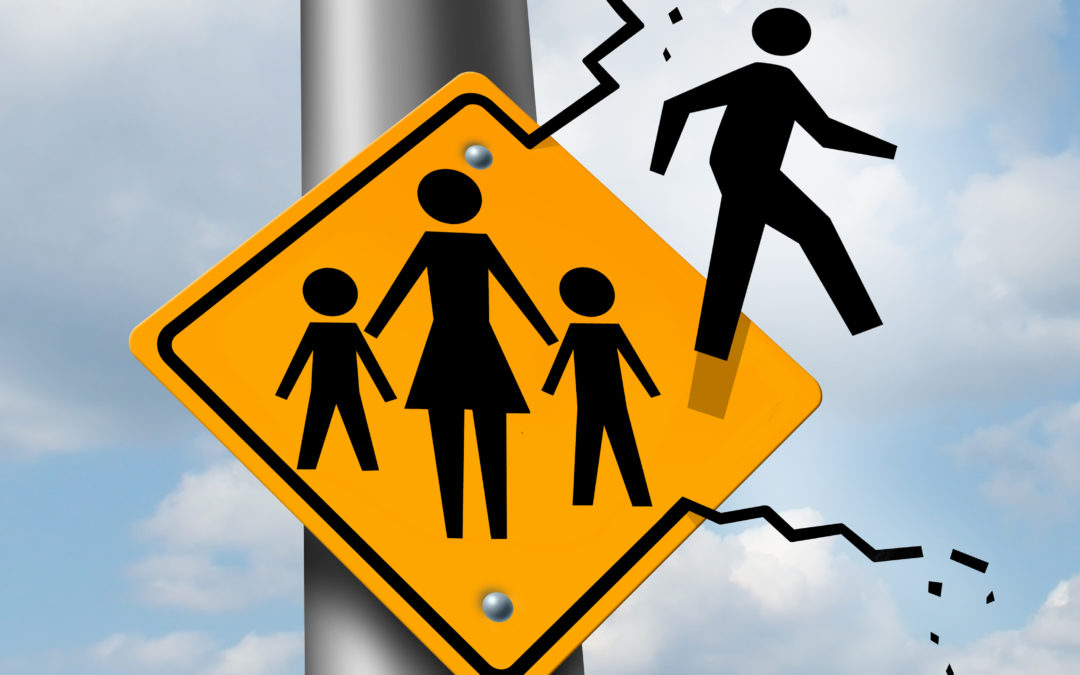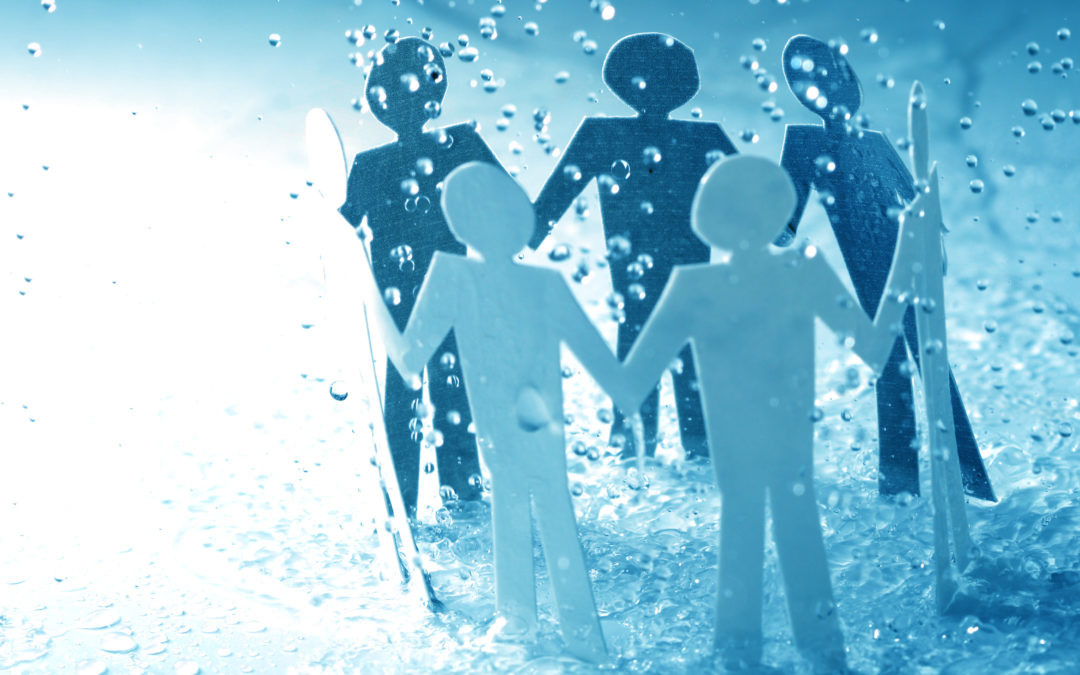
Commit to You
During the past few weeks, I have experienced several instances of “social commitments gone wrong”. Plans I made with others fell through (or almost did) and it wasn’t because of me. And based on my reaction, I can sense that at least one inner part isn’t handling it well. I have been unusually upset. I can hear the angry rants bubbling up to the surface. And of course to some extent, it’s valid. People should honor their commitments. But I also know this comes from my past experiences.
- I was not a priority in my family. I felt that in every way. Nobody cared how I felt or what my experiences were. If something more important came up (and almost everything was more important), it took the top spot. It rarely mattered what I had going on. I learned to fend for myself. I learned that if something mattered to me, I better ensure it would happen on my own. To this day, that belief affects my isolator part and it manifests as rigid independence.
- My childhood was chaos. Things were always changing. My very dissociative parents would make plans and forget they made them. Their addictive behaviors would send them in unhealthy directions at the drop of a hat. And this kind of change was not the “flow with the universe” kind of change. It was dangerous change that generally has some kind of new trauma associated with it.
- I didn’t feel worthy of friends. This message was reinforced everyday by abusers inside and outside my family. I was sure that friends were only around for a short time or were only trying to get what they needed. It didn’t help that my parents were always thwarting any close relationships that concerned them. If it looked like I might confide in someone, they would make sure that someone was out of the picture.

Come Back to Your Truth
If there is one thing I have seen as a common thread to a childhood of trauma, it is the invalidation of everything we believe to be true. Our needs aren’t validated or met. Our emotions are not validated. They are touted as problematic. Our memories are not validated. Often we are told we are making things up. And our narratives are not validated, leading to a defensive creation of a false reality just to get through childhood.
And if there is one thing that is hardest in recovery, it is learning to validate ourselves. We usually come to the recovery process with no sense of self. We don’t know how to trust ourselves or how we feel and we aren’t sure how to get there. We may get flashbacks and excuse them away as made-up. We may start to feel an emotion and hear that voice telling us not to be ridiculous. It is a pattern set deep in our psyches and we are not going to overcome it easily.
But as I have become aware of my inner parts, I have learned one very important thing. My parts are telling the truth. It isn’t just their memories that are true, but their emotions and beliefs are completely evidence-based. When I allow my inner parts to feel and to share where those feelings are coming from, they are valid and justified.
You may be thinking that can’t be true. When you are walking down the street and are suddenly in a panic, it is not a valid response. And from that standpoint, you would be right. But your inner parts don’t live in today’s world. They live in the past. And something about the current experience reminds them of something very bad. Based on that bad experience from 30 years ago, the emotion is completely valid. And that is where we must start. read more…

Love is a Vicious Motivator
For anyone who has spent time with me over the past few weeks, you probably found it hard to miss my latest obsession. Recently I discovered BBC’s Sherlock. I know what you are going to say next. “Elisabeth, you are 7 years late to that party.” I know that. I have never been a big fan of crime shows and I guess I assumed this would be the same. I never bothered to watch. But Sherlock is not about crime. It is, but it isn’t. It is about something else. And while I know my inner parts have driven this obsession (because all obsessions are driven by parts), I am just now realizing why. Sherlock is about inner parts. It is about trauma. It is about repressed memories and the way they run our lives. But most importantly, it is about love.
I am not one of those self-development people who touts the all-encompassing beauty of love in the world. I didn’t grow up in an environment that supported such things. I never had the luxury of spending time on things like love. I grew up in hell. So not surprisingly, my controller took over. My controller has always been very strong. My controller was built for survival and lives in the mind. Vulnerability, emotions and love were never a part of the program. Love was a mistake. Love was something to be avoided at all costs. And there is no TV character who epitomizes the controller more than Sherlock. He is the ultimate controller
But all controllers have one thing in common. They can’t do what they are trying to do. They can’t eliminate love from the equation. It is not possible. Why? We are here for love. And everything we do revolves around it. If you had told me that 10 years ago, I would have told you that was ridiculous. Or rather, my controller would have told you that. My controller believes love is an option. But my controller had a formidable opponent in my love seeker. And while my love seeker may be young, she is driven by love, which will always overpower the mind. read more…

Maybe It Will Go Away
The impacts of my traumatic childhood cannot be measured. They are too vast and far-reaching for me to classify, categorize or otherwise explain. That said, I do try. My controller hasn’t given up on the idea that I can define it. This blog exists because of my attempts to define it, so it’s not all bad. But the reality is too much for any one person to grasp entirely.
Over the course of my adult life, I have done my best to be an adult. But with a childhood of complex trauma and a coping mechanism which took the form of dissociative identity disorder, I haven’t always had the ability to handle life from an adult place. Sometimes my younger parts have handled things for me and this has rarely gone well. Sometimes my controller has handled things and exhausted me in the process.
But sometimes the paralysis hits. I don’t know exactly what causes it. Maybe there are too many parts who want to go in too many directions. Maybe the powerlessness is too much for the system and the shutdown is inevitable. Maybe some part believes that if I hide from it long enough, it will go away. All of these reactions come from my childhood coping and none of them will bring the best result. But often, I don’t have the ability, awareness and fortitude to overcome it.
Recently, I have noticed that my precious computer has been acting in a problematic manner. I do have an information technology background, but unlike many of my friends working in that sector, I am not a gadget person. I don’t like replacing technology at all. I don’t like the unknown. I don’t like change at all, but especially not with something as important as my phone and my computer. As I watched the erratic behavior of my computer increase over time, I could feel that urge to hide, to put my head in the sand, to expect some kind of miraculous recovery of hardware built for temporary use. I wanted a fix that didn’t involve hard work on my part. I didn’t want to deal with it. read more…

Dear Controller
We go way back. Don’t get me wrong, I go way back with the other parts too, but you are the one I remember the most. You are the one I always heard, always followed, always believed. Honestly, you are the one I thought was me. You sound exactly like me, or at least I thought you did. You are so logical and rational. You sound just like all the other adults I know. You know all the rules of society. You know the laws. You know how to avoid the pitfalls of life. You sound just like what I was told I should be. Why wouldn’t I think you were me?
Of course, I know you ARE me. You are the part who took all the messed up experiences and created the perfect mask for me to use when I faced the horrible, evil, untrustworthy world. You use incredibly detail-oriented skills to watch the world like very few can. You are the best project manager ever (if I do say so myself). You never miss an appointment. You are never late. You make things happen no matter what. Honestly, you are impressive.
But there were issues. You know what I mean. How many times did the boss compare you to a “bull in a china shop”? He would laugh, but we knew he meant it. There is a dark side to your regime. You don’t do relationships. You don’t do people. It would be fair to say you chew them up and spit them out. If they get in your way, you plow right through them. You don’t care who likes you and who doesn’t. It is about finishing what you start, getting stuff done, beating the clock. The people don’t matter. read more…

You Might Not See It But It’s There
I have many clients who struggle with the possibility they can be loving, compassionate, grounded, patient and any other characteristic they need for recovery work. They tell me they can’t possibly be this way because they have never been shown how to be that way. Their parents didn’t behave that way, and they certainly haven’t felt any inkling of those characteristics since entering adulthood. And I really get it. When I started this journey, I felt the same way.
How in the world was I going to parent my inner and outer children when nobody ever parented me? How was I going to love myself (or anyone else) when nobody ever loved me? How was I going to be compassionate with my inner parts when nobody ever gave me the benefit of the doubt? How was I going to have patience after a lifetime of fear, of watching everything I ever loved be ripped from my grasp? That wasn’t possible. I was basically screwed. Recovery would never work for me.
But for some reason, I didn’t give up. Those beliefs were strong, but I sensed there was something else. It was a tiny something else, but it was still there. For some reason, I had a semblance of understanding that I could learn these things. I had an even smaller semblance of understanding that I already knew these things. So I stuck with the idea that something better was possible.
And as we do when we live in our heads, I spent an exorbitant amount of time researching things. I thought I could teach myself how to be what I wasn’t. I read the parenting experts. And believe me, there are some awesome parenting experts. I read the spiritual folks. I read so many spiritual books, I went in to bypass at times. I learned what it was supposed to look like. I remember thinking to myself, “Maybe I can just fake it. I know what it needs to look like, so that should be enough right?” Wrong. Love, compassion and patience cannot be faked … not forever … and certainly not in parenting. read more…

Changing Relational Patterns
4 Reasons We Struggle in Relationship & 4 Things We Can Do About It
Let’s face it. Relational trauma leads to less-than-stellar relational patterns. And while some healing must happen in relationship, re-traumatization is almost guaranteed. So as I mentioned in another post, there are some aspects of trauma recovery that must happen in isolation or with professional helpers only. But when we are ready to venture in to the world of relationship again, we have to be aware of how we perpetuate our relationship patterns. And believe me, that is painful. It might be the most painful part of recovery.
So I want to take this opportunity to help you with it. I want to show you some examples of how you might be perpetuating your trauma patterns based on your own expectations. What do I mean? When we expect the world to work a certain way, it does. Now there a million reasons that statement might trigger you. It sounds awfully victim-blamey. It sounds very new-agey. It sounds like you have tried that and it has failed. But stay with me here. Consider what I have to say about it. It is not your conscious beliefs that are driving this fiasco. It is your inner parts. And while I love them dearly, they need to be taught some new things. Their expectations are ruining lives.
So how do those expectations ruin your life? Here are some examples. read more…

It’s Not About Perfection
In my early life, my perfection mask was the best. I covered up all of my insecurities with accomplishments and acquisitions. But I had unconscious beliefs that I knew were the “truth”. I unconsciously knew there was something horribly wrong with me. I unconsciously knew that horrible things had happened to me. I unconsciously knew it was my fault they happened to me. So I was damaged.
But I didn’t consciously know until I was pregnant with my twins. At that point, something started to shift. My insecurities started to come forward. My panic that my children would not be safe began rising from the depths of my repressed trauma. I started to get in touch with my intuitive understanding that everything I thought was real was not real.
And by the time the twins were born, I was in a full panic most of the time. I had no idea how to care for kids. I knew I had not been taught by my own parents although I didn’t know why I knew that yet. As the memories came back and the emotions were felt, I made several promises to my kids. I would never traffic them. I would never sexually abuse them or allow anyone else to do that. I would never physically abuse them or allow anyone else to do that. I would not neglect them. I would love them unconditionally and be emotionally available to them. I would be a real mother and protector.
I wanted to do these things because I didn’t want my children to feel as damaged as I felt. I wanted them to feel safe in the world. I wanted them to wake up each morning without the dread, the terror, the anxiety, the depression that haunted me. I wanted this so bad. I wanted this more than I wanted to stay alive. But I was too late. read more…

5 Ways Groups Heal
I have been coaching trauma survivors for a few years and I love it. I love it so much, I have been known to jump around my office and cheer for the amazing progress a client is making. I love it so much, I struggle to find balance because I always want to check in with my email and Facebook. It isn’t coming from obligation. It is coming from purpose. And I love that feeling, even when I have to focus on balance because of it.
But when the intuitive message came through loud and clear that I was supposed to start my first group, I was hesitant. It was one thing to coach clients on a 1-on-1 basis, but it was very different to run a group. Let’s face it, those of us with relational trauma can struggle in groups. I wondered what I was getting myself into. How many triggered survivors would I have to talk out of leaving the group? How many times would I cringe as I watched conversations with varying opinions go in a defensive direction? I worried.
Mostly, I worried whether or not I would be capable of moderating a group of survivors in a way that would feel safe. I did not want to be a part of the problem. I did not want to run a group that became another source of invalidation for a survivor. I have heard the stories. It’s hard to find a home when we already have a tendency to separate and isolate as a defense. And when someone disagrees with us, we might take that all-or-nothing stance:
“We disagreed, so now they hate me.” read more…

Helping the Healing
I’m going to get real about helpers today. Helpers can come in many forms. They can be therapists, life coaches, energy workers, EFT practitioners, mentors and more. All of these professionals have the potential to help trauma survivors. But these relationships have the potential to get off track, to cause harm, to re-traumatize. In social work school, I had one professor who had us frequently repeat the mantra, “Don’t sleep with your clients.” It was sort of tongue and cheek and it sort of wasn’t. But I am not talking about the obvious stuff today.
The stuff that throws us off guard is the stuff we don’t see coming. Maybe we don’t see it because it is subtle. Or maybe we don’t see it because we are repeating our unconscious patterns and haven’t developed awareness yet. Either way, we can be thrown off our recovery path when we repeat patterns with our helpers. So here is my list of what not to do if you are a helper or a help-seeker.
Helpers:
- Don’t deny a self-diagnosis. When a client is exploring whether a particular mental illness describes them, don’t dismiss it. Your clients might have a tendency toward “catastrophizing” or even hypochondria, but examine it with them. Explore the possibilities. I find this to be especially necessary with dissociative identity disorder. We have seen the Hollywood version of D.I.D. and we assume this means we would know immediately if we met someone with this disorder. But that’s not true. It can be very subtle. Parts are great at disguising themselves, especially in front of helpers. If you are thinking, “my client is not messed up enough to have that”, allow the exploration anyway. You might be surprised.
- Don’t tell a client to avoid memory recovery. Let me put it another way. Don’t tell a client they can heal without recovering their memories. They can’t. They locked those memories away with their emotions, and to fully heal, they have to recover the memories and feel the emotions. Do they need to examine every minute of their childhood? But they need to know the truth about what they went through and how that has impacted their belief systems. So you may feel the need to advise a client against memory recovery for a variety of reasons, but don’t tell them they can heal without that work.
- Don’t tell a client to think positive to feel better. While managing thoughts are helpful in stopping the cycle of emotions feeding thoughts feeding emotions, thinking positive when we feel like crap is putting lipstick on a pig. It is a mask and it doesn’t heal anything. Allowing our traumatic emotions is the best thing we can do for our own healing.
- Do your own work. When we are invalidating our pain, we are likely to project that invalidation on to our clients. If we haven’t allowed ourselves to feel the deep pain of our own past traumas, we can’t guide our clients through it. I work with many helpers as clients. I am proud they made the choice to go deeper. I know they will heal more people because of their own healing. There are many degrees you can get in the trauma field, but the most important expertise is your own healing experience.

